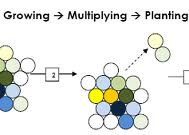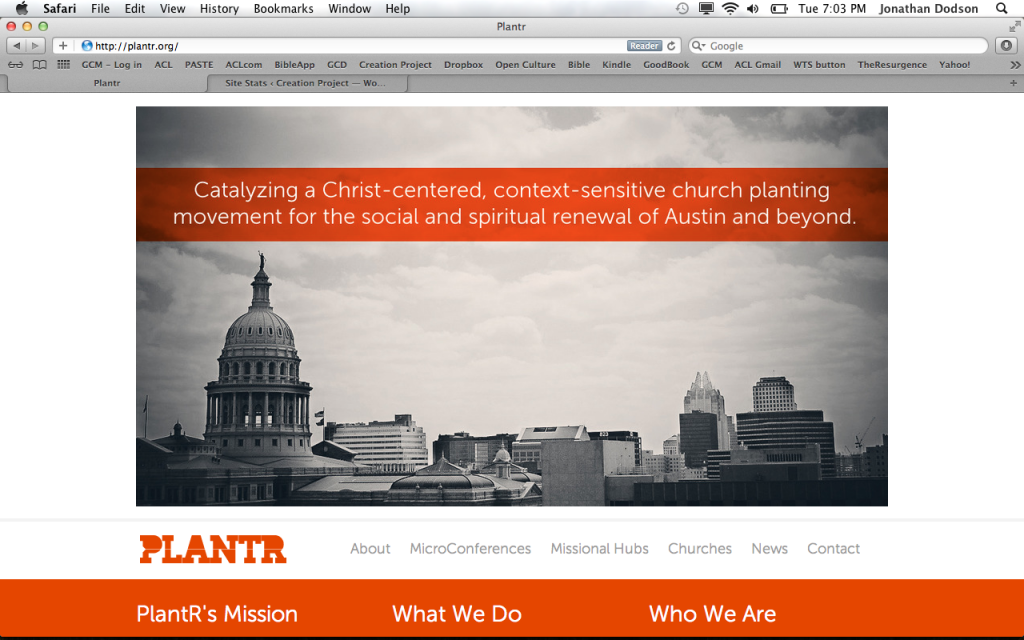This is a review of Mike Breen’s Building a Discipleship Culture. (Available only as an eBook. It’s worth your $7.49.)
I appreciate Mike Breen’s radical focus on discipleship. He points out that many leaders in the West, while often well-educated, are poorly trained for disciple-making. In seminaries we learn exegesis, systematic theology, church history, and pastoral duties but all too often the basics of making a disciples are left out. While there are exceptions, in general, he’s right. It’s true. Things do need to change.
Some Strengths of the Book

Build a discipleship culture. This is what Breen does well. Build. Equip. Change. If you’re looking for a book to help you to create a discipleship culture, look no more. He does this through structure and insight. The second half of the book is devoted to discipleship structure. He calls for Huddles, small groups of disciples who meet regularly to encourage and disciple one another. These huddles have multiplication built into them. They are kind of like Fight Clubs but with much more structure and intentionality.
What I enjoyed most about this book were the discipling insights, things like Invitation and Challenge. Invitation and challenge was one way Jesus made disciples. He invited them into his life, but not just to be his buddies; he also challenged them. Too much buddying is done in the name of discipleship. We need to deepen in our security in Christ to love others enough to exhort, challenge, and correct them with grace and truth. Breen notes that Jesus created a “highly supportive but highly challenging culture.”
I was teaching through a holistic discipleship class in our local church while reading Building a Discipleship Culture, and to my surprise, there were a lot of overlaps in our structures and insights. This was affirming, as Mike has been at it a bit more than me. Discipleship, if it is going to be true to God’s intention, has to be intentional, integrated, and informed. Mike says roughly the same thing when he calls for three environments: Classroom, Apprenticeship, and Immersion. Most Westerners never get beyond the classroom. Discipleship remains at arms length idea, not a personal investment.
Now, don’t jump to conclusions by lumping Mike into an anti-theology camp. He says teaching and doctrine are “incredibly important”, but goes on to point out how Jesus taught important doctrines in the context of relationship and ministry immersion. So, in building a discipleship culture its important that we integrate information with intentionality in the context of relationships. I really like this statement:
“The best discipling relationships always have an intentional, ‘organized’ component to them, as well as a less formal, ‘organic’ component.”
It’s true. Go all organic and its hard to grow well. Even plants often need support. Go all intentional and relationships can be reduced to meetings and information transfer. We need both intentionality and relationship. For these insights and many others, Building a Discipleship Culture is worth reading!
Overstatements in the Book
Now, Mike and I have exchanged a few winsome emails about some things he says in his book. And, if I understand correctly, he has a tendency to overstatement (of course none of us do!). In light of that, here are a few that I think need qualifying:
- “Disciples are the only thing that Jesus cares about, and its the only number that Jesus is counting.” Really? Jesus doesn’t care about our doctrine or church polity? And is Jesus counting disciples because he’s basing our worth as a disciple on how many disciples we have, or is he counting because he died for his disciples? Counting can be a dangerous thing.
- So what is the engine of the church? Discipleship. “If you make disciples, you will always get the church. But if you try to build the church, you will rarely get disciples.†There’s some truth to this statement, but it’s not a truism. Disciples have been made without making churches throughout church history. Very often they end up as cults. Alternatively, many churches are started that don’t mature and multiply disciples but instead gather Christians to Sunday events. This probably needs nuancing.
The Engine of the Church
If discipleship is the engine of the church, we put our hope in pragmatism, albeit Jesus imitating pragmatism. But the hope of every disciple and would be disciple is not the method of discipleship but the might of the gospel! The gospel, not discipleship, is the engine of the church. I asked Mike about this and he gave a helpful response:
All metaphors break down at some point and I’m sure saying discipleship is the engine breaks down on many levels, though i think it works on many levels too. I don’t know that I was trying to make a significant theological statement so much as point to a reality of causation that I believe exists/doesn’t exist in the church. I think you could say discipleship is the fuel and the Gospel is the engine and the point is still proven. Without fuel, the car is still going no where, just as it wouldn’t without an engine.
Point taken! Then I say, “Let’s start the engine, fill it up, and start making disciples!” Let’s build discipleship culture with the gospel of Jesus right in the middle of it!
 The popularity of missional community is rising among evangelicals, and yet, the American church is nowhere near a missional tipping point. I’ve faced missional highs and missional lows. Along the way, I’ve considered a number of things that are absolutely necessary for us to endure the transition to missional church. How should we respond to the challenges of missional community? Over at www.gcmcollective.com blog I’ve posted three things to keep in mind as we lead on mission. The three points are below; click here for the whole post.
The popularity of missional community is rising among evangelicals, and yet, the American church is nowhere near a missional tipping point. I’ve faced missional highs and missional lows. Along the way, I’ve considered a number of things that are absolutely necessary for us to endure the transition to missional church. How should we respond to the challenges of missional community? Over at www.gcmcollective.com blog I’ve posted three things to keep in mind as we lead on mission. The three points are below; click here for the whole post.
![Be_Missional_Not_Superficial[1]](http://jonathandodson.org/wp-content/uploads/2012/01/Be_Missional_Not_Superficial11-300x168.jpg)

